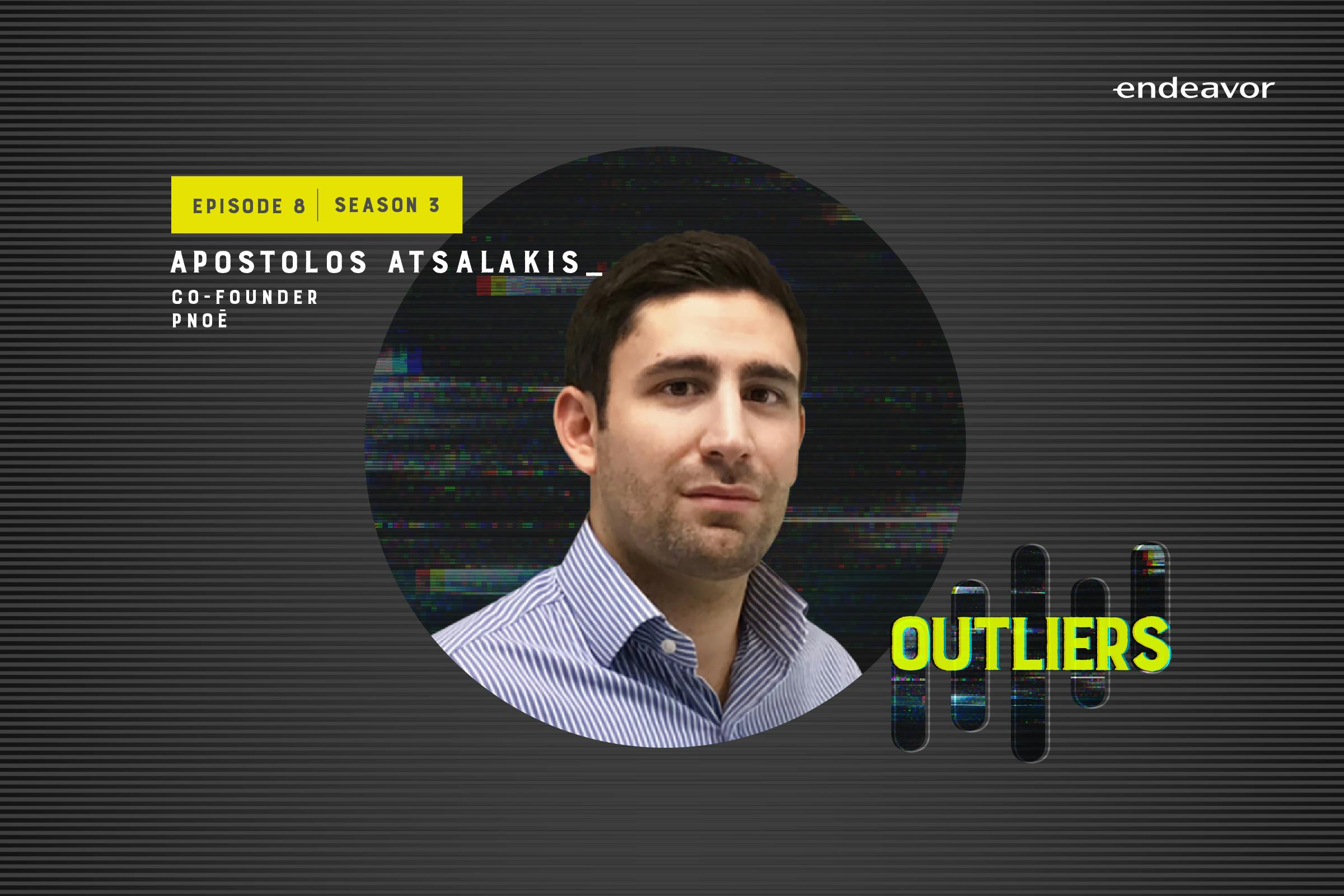“What we can see from human blood we can see from breath“
Thus began the idea of PNOĒ as described by Apostolos Atsalakis, one of its founders.
Speaking to Outliers, the podcast of Endeavor Greece, with media partner MoneyReview, Apostolos Atsalakis explains that PNOĒ offers a high-precision device, which uses the biometric indicators it collects from the breath and performs analysis metabolism. Based on this it offers a personalized diet, exercise program, as well as an overview of the user’s physical condition and health status.
Apostolos Atsalakis received his first degree in applied physics in Metsovio, from where he got the knowledge to apply and attend Cambridge. There he studied nanotechnology and got to know breathing space, which led him to begin his PhD in sensor technologies.
The prototype of PNOĒ was created at the beginning of his doctorate. Nanotechnology deals a lot with sensors, which refer to breath analysis. He himself decided after a while to leave his doctorate, and start PNOĒ’s journey with a childhood friend who attended and graduated from Stanford, Panos Papadiamantis.
First steps
The two founders, one from England, the other from America, initially talked from a distance about setting up the company, and then after the first round of financing, decided to set up their team in Greece.
Initially, PNOĒ was aimed at health professionals such as gyms, nutritionists, physiotherapists and mainly in the US market. This continues to be to constitute 80% of the user base, while now it is also addressed to individuals. Overall, PNOĒ has about 2,000 clients, some of which are large organizations like me universities or NBA teams.
What do we see from the analysis of respiration?
Whatever biometric indicator is in the blood, it has a “cousin” in its analysis breathing, explains Mr. Atsalakis. In other words, the analysis gives many results, just like one analysis, but without the need for a needle and is thus less “intrusive”.
The analysis measures the user’s metabolism, showing exactly how many calories he burns inside in his day. Therefore, the company can then suggest the best diet. The PNOĒ device also detects whether the user’s body is in a fat or carbohydrate state at rest and in a state of exercise. Mr. Atsalakis explains that this is a very important indicator since based on this, one can learn what is the right diet, not only for weight loss but also for a healthier life.
In addition, the maximum amount of oxygen can be measured through PNOĒ analysis consuming the users body at the peak of exercise. This is a biometric indicator that can also provide data on lifespan. From the same test and just with a different one analysis of the same biometric indicators, ie the health of the heart, lung and metabolism. Unlike traditional tests one can encounter in hospitals, PNOĒ wanted to provide something easy to use, lightweight, portable and much cheaper.
How the measurement is made
The measurement takes about 25 minutes with hints and instructions for PNOĒ via zoom. The user, who does not need to have fitness equipment in his home, then sends the device in PNOĒ for analysis. Then, through special use for the mobile and a biometric watch, the company monitors and processes various data on calories, diet, sleep and stress. Based on this, one can offer personalized tips for a better diet and healthier life. Mr. Atsalakis notes that one can have 92% accuracy from his living room in relation to the best device that currently exists in terms of biometric indicators and with it how to prevent serious and dangerous diseases.
Of particular interest is also those who have contracted Covid-19, for whom the PNOĒ offers a special function, through which the user monitors the status of his lungs.
The next steps
PNOĒ will use the money raised from the last round of funding to enlarge the sales team, make small changes in marketing and focus on the further development of artificial intelligence, algorithms and application to improve the experience of each user.
“With great pleasure I see that the Greek ecosystem of startups is improving a lot in relation to four or five years ago”, Mr. Atsalakis is optimistic, adding that companies now are much more extroverted, as they often go to foreign markets and have foreigners, investors.

